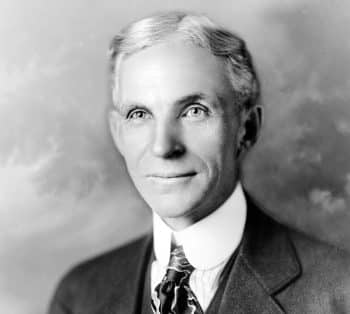Home » Spotlight • US business news » 10 CEOs Who Damaged Their Reputations With Controversial Comments
10 CEOs Who Damaged Their Reputations With Controversial Comments
https://www.whatjobs.com/news/what-news-topical/10-ceos-who-damaged-their-reputations-with-controversial-comments

By Hugh Fort in Spotlight, posted May 10, 2024

In the high-stakes world of business leadership, a single misstep in communication can lead to severe consequences, particularly if they come from CEOs.
Some bosses, like Tesla and X owner Elon Musk, like to court controversy with their comments and have, so far, survived with their reputation intact.
Other CEOs shun the limelight and get on with their business.
Here are ten CEOs whose controversial comments tarnished their professional reputations and, in some cases, impacted their companies.
Don Imus – CBS Radio
The late radio personality and CEO Don Imus faced severe backlash after making racially insensitive remarks on his show in 2007.
Imus referred to the Rutgers University women's basketball team, which was predominantly Black, with derogatory and racist slurs.
CBS quickly fired him and his comments were widely condemned.
John Schnatter – Papa John’s
John Schnatter’s tenure as CEO of Papa John's ended abruptly after he used a racial slur during a company conference call in 2018.
The comments were leaked and led to his resignation.
Unsurprisingly, the incident also led to a major PR crisis for the company.
Tony Hayward – BP
The 2010 Deepwater Horizon oil spill is widely regarded as one of the worst environmental disasters of all time.
During the fallout, BP's CEO Tony Hayward declared: "I want my life back."
This comment didn't go down well.
The comment was deemed as massively insensitive given the magnitude of the ecological disaster and the loss of life.
His remarks were seen as self-centered and tone-deaf, leading to his resignation and a tarnished public image.
Dov Charney – American Apparel
Dov Charney, the founder and CEO of American Apparel, was known for his controversial behavior and comments, often of a sexual nature, that aligned with the brand's provocative advertising.
His public statements and alleged personal misconduct contributed to his dismissal from the company in 2014.
Need Career Advice? Get employment skills advice at all levels of your career
Timothy Cook – CrossFit
In 2020, CrossFit CEO Timothy Cook resigned after making insensitive remarks about the COVID-19 pandemic and the death of George Floyd.
His comments were made in internal communications but were later made public.
This led to gym affiliations and sponsorships being pulled, showcasing the broad-reaching consequences of a leader’s words.
Mike Jeffries – Abercrombie & Fitch
Mike Jeffries stirred controversy with his comments about Abercrombie & Fitch's target demographic, stating the brand was exclusively for "cool, good-looking people," and not for "fat" people.
His remarks received widespread backlash for promoting body shaming and exclusion, affecting the company's inclusive image.
Kevin Plank – Under Armour
Under Armour CEO Kevin Plank faced criticism after expressing support for controversial political statements made by President Donald Trump in 2017.
His comments led to a negative reaction from consumers and even from high-profile endorsers.
This prompted him to take out a full-page ad in The Baltimore Sun to clarify his stance.
He stood down as boss in 2019 but seems to have weathered the storm, having returned to the company in March 2024.
Greg Glassman – CrossFit
Crossfit has not had a good time of it with its CEOs and their outbursts.
Another CEO, Greg Glassman, resigned in 2020 after making insensitive remarks about the George Floyd protests.
His tweet, which made light of both the pandemic and racial justice protests, sparked outrage among the CrossFit community and the general public, leading to his swift resignation.
Talk about not learning from other's mistakes.
Lloyd Blankfein – Goldman Sachs
During the 2008 financial crisis, Lloyd Blankfein's comment that Goldman Sachs was doing "God's work" was met with public and media scorn.
The remark, which came during a period of significant economic hardship for many, was seen as arrogant and out of touch, reflecting poorly on his and the firm’s image.
Follow us on YouTube, X, LinkedIn, and Facebook











